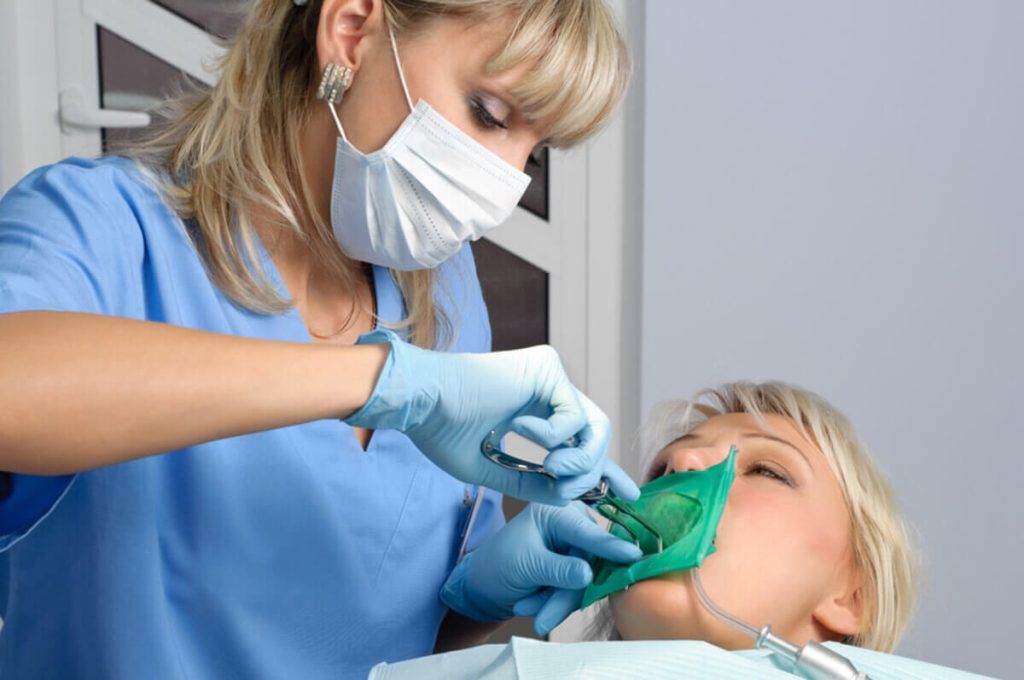A dental procedure called a tooth extraction involves completely removing a tooth from its gums-covered socket and jawbone. This technique can be used to remove any teeth that are too damaged to be saved, are painful, or negatively impact the teeth around them. However, it is most frequently done to remove wisdom teeth.
Our dentist in Lethbridge will try to save your teeth and suggest a tooth extraction as a last alternative when the original tooth is hurting. Other operations, such as fillings, root canals, and crowns, can often save the natural tooth when it is damaged. These are the most common reasons for tooth extraction:
Reasons To Get A Tooth Extraction and Prevent Severe Damage:
1. Wisdom teeth
The removal of wisdom teeth is very common because they are frequently impacted.
When a wisdom tooth is fully formed but fails to push through the gums, it is said to be damaged. Due to its positioning beneath the gums or sometimes at an awkward angle, the tooth can cause gum irritation and change the alignment of the teeth nearby.
Impacted teeth that have only partially erupted can also be hard to keep clean and are more susceptible to tooth decay than other teeth. A dentist may recommend getting tooth extractions near you, in order to prevent pain, displacement of neighboring teeth, or the development of decay.
2. Gum disease
If your tooth has lost all bone support and cannot be saved, it must be extracted.
One reason could be gum disease (also known as periodontitis). It is a serious inflammation of the gums that damages the soft tissue. Gum disease is frequently brought on by poor oral hygiene, which leads to the accumulation of plaque and tartar on the gums. Severe periodontitis can harm the bone that supports your teeth, which can result in loose teeth.
3. Reduction of Crowding
Overcrowding causes teeth to push against each other and move. This may cause your teeth to turn at odd angles or move in unusual ways. This not only detracts from the appearance of your smile, but it can also result in a misaligned bite and make it challenging to clean in between your teeth.
In order to provide the remaining teeth with enough room in the mouth to fit properly, a dentist may advise tooth extraction.
4. Fractured Tooth
Although teeth are made of bone and can be rendered brittle in some instances, overall they are incredibly durable. When a tooth develops a fracture, the tooth may occasionally split or break. A crown, bonding, or root canal may be used to save a tooth with a minor break.
However, tooth extraction might be needed if the crack has affected the tooth’s structure, including the nerves and the root. A severely damaged tooth that is left untreated might hurt and develop an infection, which can create more severe issues. You should seek emergency dental care immediately if you have a tooth that is significantly fractured, chipped, or broken since this is a dental emergency.
5. Severe Tooth Decay
Poor oral hygiene and genetics can both contribute to severe tooth decay. Your dentist may recommend extraction if the decay in your tooth is too advanced to be treated with a filling, crown, or root canal. By doing this, the decay won’t spread to the nearby teeth.
Find Out More About Tooth Extraction in Lethbridge
Following your extraction, it’s crucial to rest and stick to a soft food diet. For a more detailed explanation of the extraction process and recovery, reach out to your dentist near you. It’s also crucial to keep in mind that your dentist will try every alternative option before opting to extract your tooth. The only way to fully protect your mouth, though, is to occasionally completely remove the tooth.
Are you looking for a tooth extraction in Lethbridge? Make an appointment with Absolute Dental to go over your treatment options and schedule your consultation.
